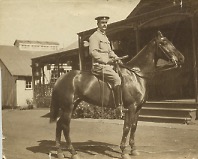Studies in 20th & 21st Century Literature (STTCL) (http://newprairiepress.org/sttcl/) is committed to publishing high quality, anonymously peer reviewed articles written in English on post-1900 literature in French, German, and Spanish. All issues are available online.
Recently published special issue: 41.2 (Summer 2017): Writing 1914-1918. National Responses to the Great War. “From the National Context to its Margins: When the World Used Literature to Respond to the Great War”.
Guest Editors: Toby Garfitt & Nicolas Bianchi
Articles on Canada and Argentina as well as France, Germany and Britain. Full table of contents available here.
By shedding light on some original responses to the Great War that are today hardly known, and by asking the same questions of many works written in contexts which were radically different, this STTCL special issue advocates for a genuinely comparative approach to this literature. Born in a context of nationalist withdrawal, these cultural objects also had a paradoxically wide circulation (due to early translations, commentaries, literary reactions, and so on), which is why study of these apparently isolated writers is so valuable.
 Writing the Great War / Comment écrire la Grande Guerre?
Writing the Great War / Comment écrire la Grande Guerre?
Francophone and Anglophone Poetics / Poétiques francophones et anglophones
Edited by Nicolas Bianchi and Toby Garfitt
Series: Romanticism and after in France / Le Romantisme et après en France, Vol. 27
Series Editor: Patrick McGuinness
Peter Lang, Oxford, 2017. XIV, 366 pp.. ISBN: 978-1-78707-198-8 (print)
Available to purchase in ePDF and ePUB formats here.
For France the First World War, or Great War, was a war of national self-defence, but for Britain it was not. Does that mean that French literary treatments of this unimaginably destructive war were very different from British ones? Not necessarily – but much can be learned from considering both traditions side by side, something that is rarely done.
The essays collected in this bilingual volume, by a range of scholars working on literature and history on both sides of the Channel, show that while the wider purposes of the war are striking for their absence in both French and British traditions, there are many common strands: realistic narratives of the trenches, humour as a safety-valve, imagination and creativity. Yet there are differences, too: for instance, there is plenty of French poetry about the war, but no real equivalent of the British «war poets». The volume looks at iconic figures like Owen, Brooke, Barbusse, Apollinaire and Proust, but also at a number of lesser known writers, and includes a study of «poetry of colour», recognising the active contribution of some four million non-Europeans to the war effort. The book includes a preface by the eminent war historian Sir Hew Strachan.
Engagée dans une guerre défensive sur ses frontières, la France connut une Grande Guerre bien différente de celle avec laquelle composèrent ses alliés britanniques. Faut-il en conclure que les deux nations furent amenées à produire des réponses au conflit radicalement différentes? Peut-on dégager des traditions nationales ou des tendances transnationales ouvrant la voie à des comparaisons encore rarement esquissées par la critique littéraire? C’est le pari des contributions de ce volume bilingue, réunissant autour de la question: «comment écrire la Grande Guerre?», les articles de spécialistes francophones et anglophones des domaines historique et littéraire. Il montre la variété des thématiques partagées par les deux traditions littéraires: récits réalistes des tranchées, usage de l’humour comme d’un exutoire salutaire, imagination et créativité; et souligne la présence de différences notables, comme l’absence de mythification en France de la poésie de 14, pourtant elle-aussi produite en masse tout au long de la guerre. L’ouvrage, tout en donnant une place de choix aux écrivains de premier ordre (Owen, Brooke, Barbusse, Apollinaire ou Proust), tente d’offrir quelque visibilité à un certain nombre d’auteurs moins connus, au nombre desquels des auteurs de couleur, à qui leur contribution à l’effort de guerre n’aura pas valu la reconnaissance littéraire attendue. La préface a été rédigée par Sir Hew Strachan, grand spécialiste de l’histoire de la période.
Nicolas Bianchi is a normalien and agrégé de lettres modernes, teaching at Université Montpellier III.
Toby Garfitt is Fellow and Tutor in French at Magdalen College, Oxford.




 Turning Point 1917. The British Empire at War
Turning Point 1917. The British Empire at War Le génocide des Arméniens : représentations, traces, mémoires
Le génocide des Arméniens : représentations, traces, mémoires Writing the Great War / Comment écrire la Grande Guerre?
Writing the Great War / Comment écrire la Grande Guerre?